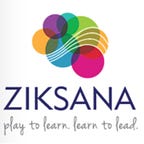Your Guide to Performance Coaching
These days, many people are talking about how coaching is an essential skill for managers and becoming an effective leader.
We believe that to be true at Ziksana. However, coaching as a general term can be a bit of a misnomer. It’s a soft skill, a people skill, which can lead managers to think, “I have to spend more time talking to my team about what they care about- which I don’t have time for.”
“Coaching” is a catchall term, encouraging managers to learn how to have more effective conversations with their employees. At Ziksana, we believe that there are two kinds of coaching: performance coaching and development coaching.
Performance coaching is about current productivity. In most cases, performance coaching addresses a small but important problem occurring in a performance aspect.
For example, a team member may have missed the mark on a deadline or a detail on a project. Sometimes informal feedback on its own is enough to fix the problem. When it’s not, a more formal sit-down conversation can be helpful.
Coaching allows you to highlight those feedback points as evidence of the problem and then explore alternative ways to address it in the short term — because improving performance matters in the short term. Engaging an employee in a performance-coaching conversation can help them develop a problem-solving skill-set and meet expectations to enhance their productivity.
Our tip: Have performance coaching conversations when needed and at least once every review cycle (preferably two times per year).
Development coaching is about finding out what people care about, what motivates them, and what they see as the long-term outlook for their career. Development coaching conversations are about how the manager can help guide an employee to make short-term decisions to grow and practice new skills or take on new challenges to move towards that end career goal. Development coaching provides managers with a way to keep employees engaged and invested in their role.
Our tip: Have development conversations after a performance review conversation so that work motivation is high during the next review period.
Performance coaching requires a problem-solving mindset and a willingness to improve from the employee. Development coaching requires the employee to have a growth mindset and for the manager to identify specific boundaries for failure and learning.
We recommend that managers don’t mix having a performance and a development coaching conversation simultaneously. Combining them can be confusing to the employee because they don’t know whether the manager is addressing a short term or long term problem. The energy and mindset that people have are different in each coaching type, so managers need to separate the two to have the best-intended outcome from that conversation.
As well as, download our Free Personal Motivation Diagnostic here.
Watch Ziksana’s Founder, Akshay Sateesh, explain Performance and Development coaching!
